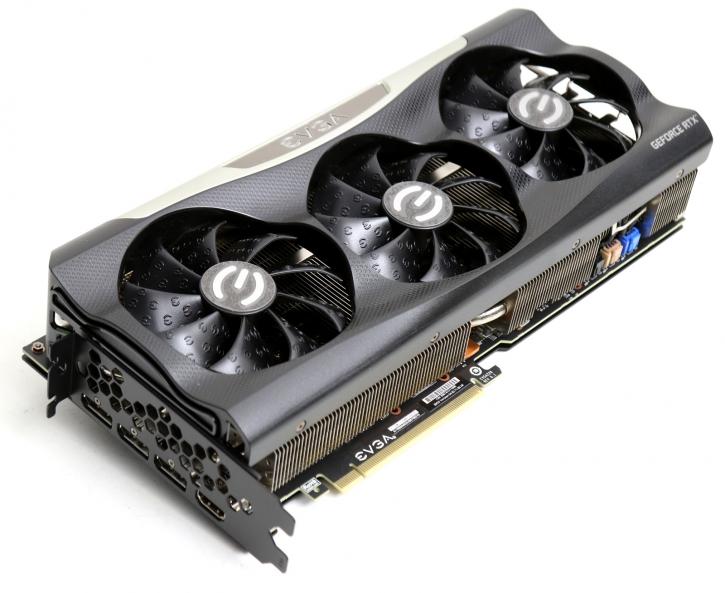Introduction
EVGA GeForce RTX 3080 Ti FTW3 Ultra Gaming review
In this review, we test the EVGA GeForce RTX 3080 Ti FTW3 Ultra Gaming, a premium card with extras and factory tweak. The performance certainly holds ground as it is a proper player in the graphics arena. There's no denying it. It has been a bizarre year if we're talking computer components alone, silicon shortages, mining; it's been sour grapes for a long time. Likely that won't even change soon. People are almost fighting to grab a decently proceed graphics card, often running up to three times the MSRP pricing. NVIDIA is staying on its trajectory, though, implementing hash-rate limitations for consumer-grade GPUs and releasing refresh products pretty much as scheduled. Today, we see such a refresh product that positioned itself between the GeForce RTX 3080 and 3090. That product would be the GeForce RTX 3080 ti, and probably was the worst kept secret as of late in the history of NVIDIA. Armed with a shader core count of 10240 units, this card is paired with 12 GB of GDDR6X graphics memory running 19 Gbps. Much has been said, rumored, and spoken about this card, as with that libidinous shading core count, it is bound to be a bit of a beast in the enthusiast performance segment. You need to remember that it was less than a year ago that NVIDIA launched their Ampere GPU series, September 2020, in fact. A week before announcements, specifications of the GeForce RTX 3060 Ti, 3070, 3080, and 3090 took a twist; the shader core count mysteriously doubled up from what everybody expected, to date something massively important to this product range as yes, the competition has gotten fiercer as well. NVIDIA's GPUs are fabricated on an 8nm node derived from Samsung. This process further develops Samsung's 10nm process; no EUV is applied in production just yet. This second wave of announcements will see the GeForce RTX 3080 Ti and next week 3070 Ti (hey, come on, it's not a secret). The desktop product line of Ampere for consumers now entails the GeForce RTX 3060 Ti 8GB, 3070 8GB GDDR6, RTX 3080 10GB, RTX 3080 Ti 12GB, and RTX 3090; what we test today is a 12GB GDDR6X based close to the premium flagship. Much like the 3080 and 3090, the 3080 Ti will base based on the existing 28 billion transistors based GA102 GPU from NVIDIA, obviously reconfigured. The card has an impressive 10240 Shader processors activated, and mind you; the 3090 has 10496. A big change is that the memory is halved from 24 towards 12 GB (an excellent value).
EVGA FTW3 Ultra Gaming
At the time of writing the FTW3 Ultra can be found at the EVGA website for $1399,- but due to ongoing global price wars and shortages it is hard to foresee what future pricing will do as even at EVGA these cards are out of stock, unfortunately.The EVGA GeForce RTX 3080 Ti FTW3 Ultra is fitted with that NVIDIA GA102 GPU; it has a satisfactory number of shader cores activated and is paired with 12GB GDDR6X graphics memory. EVGA offers the card configured in a semi-passive design at default BIOS mode; the triple fans start to spin and cool once the GPU warms up (fan-stop). You'll notice it has 3x 8 (6+2) pin power connectors.
The FTW3 includes a custom-design PCB topped off with an iCX3 cooler, and a radiator tied towards copper heat pipes that pull heat through a copper base plate. It all gets ventilated by a threefold of independently controlled fans. The FTW3 Ultra version has RGB LED decoration located at the top cooler side of the card. The card is rated by us with a typical 425W power draw, a value that is 350W for the reference design. This indicates it will perform a notch better at default clocks as EVGA allows a bit more power to boost performance. Weighing in at close to 1600 g., this graphics card on the big side of the spectrum with a triple-slot (2.75 Slots) and dimensions of 300x136.75mm. A dual BIOS is present, both modes offer the out-of-the-box boost clock for this product is 1800 MHz and it's memory clocked at reference 19 Gbps (19 Gbps reference). But hey, let's start up this review, shall we?


